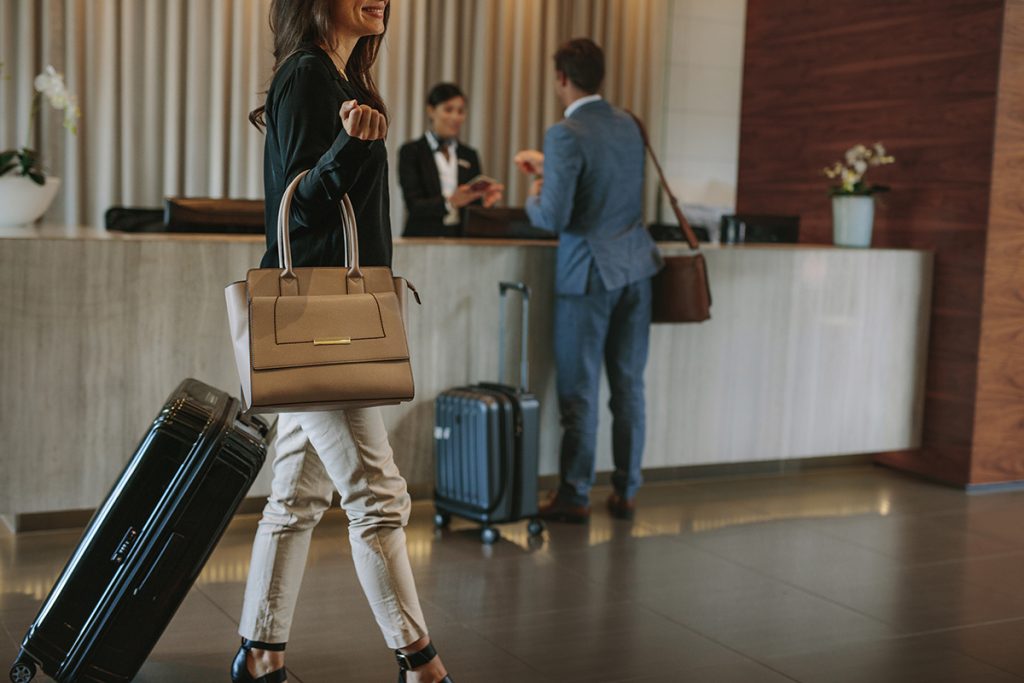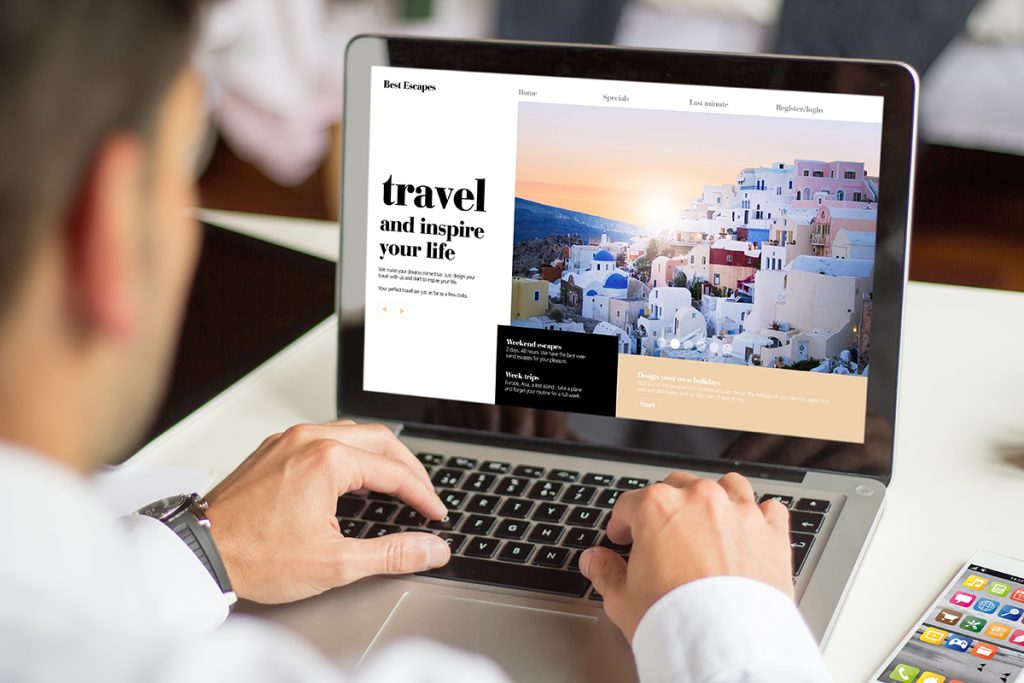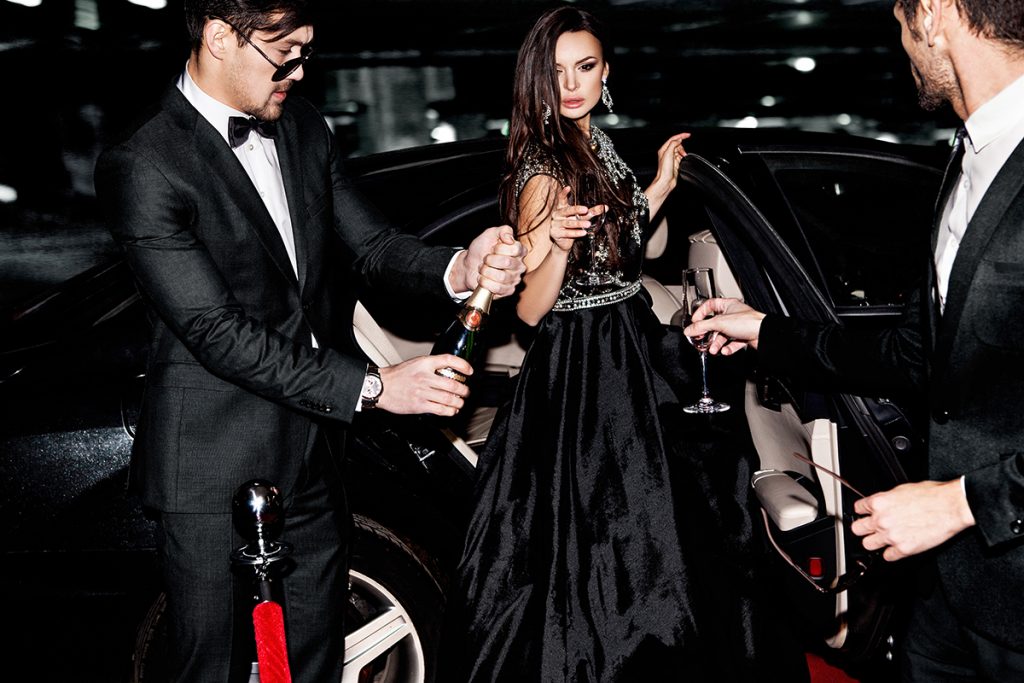Modern luxury hospitality marketing is not just about flyers, brochures and dealing with luxury travel advisors at trade events anymore. While those old-school methods still play a huge role in the overall revenue mix for most luxury hotel chains, their importance in the modern world is slowly decreasing due to the rise of digital marketing and the generational wealth transfer towards millennials that we are seeing right now in luxury markets worldwide.
Baby boomers and Gen X will eventually phase out as the core hospitality buying segments in the next ten years. So much is certain. But how can sophisticated hospitality groups ensure that their luxury brand portfolio stays viable in the minds of a new generation of guests and continues to command luxury prices and profit margins while doing so? In our opinion, the answers lie at the crossroads of advanced martech and data applications, combined with luxury marketing best practices. Let’s explore some of the most advanced digital marketing use cases you can work on nowadays and why only a few brands (if any) have adopted all of these so far in their luxury hotel, resort or rental marketing operations.
The importance of innovation and staying competitive
In our experience in dealing with luxury hoteliers and marketers we have come to believe that there are two archetypes when it comes to owners, operators and decision-making executives in hospitality. The first one is what we call the “let’s not take risks – don’t change what is working fine” type. These people tend to rely a lot on traditional methods of driving bookings and, in general, think digital marketing is either a waste of time, money or, at best, highly suspect.
They view it is a costly exercise in nonsense for the most part since they think HNWIs are anti-internet or anti-online. Needless to say these folks tend to reject what we propose for them and rarely become our clients. The other type of executive is the “we always need to be learning, improving and take calculated risks if necessary to be the best.” We obviously prefer the second type more since we think the future of the industry belongs to this type of decision maker. The reason for the old-fashioned type of executive still being so dominant nowadays are complex, historical and varied, but, luckily, we are seeing a (generational) shift here as well in terms of new management. Another important distinction is the buying behavior that comes with a like or dislike for digital marketing.
The “let’s do it as cheap and efficient as possible” camp tends to include organizations that like to do most of their digital marketing in-house and, at best, try to get ideas from outside agencies and consultants in the form of thought leadership content. Fair enough, everybody loves to learn new things for free. However, in our experience, the biggest, most successful, most cutting edge luxury brands ALWAYS employ a mix of in-house and external talent and have more of a “we want creativity and quality” type of buying mindset. Ultimately the combination of calculated risk taking, openness towards innovation and a need for creativity and quality is what will produce and elevate the luxury hospitality brands of the future.
The ones who stick to their old-fashioned attitudes will diminish and eventually disappear, even if they have a grand heritage or the stock market is backing them in terms of capital infusion. If you belong to the forward-thinking camp, then the following use cases are crucial for the survival and growth of your brand in the next 5-10 years. Similar things can be said about boutique brands as well, by the way, if they want to thrive in a competitive environment. Trust us, you need to be investing in these areas to stay relevant in the coming years.

Neuromarketing and consumer psychology
The simplistic view of the average affluent guest that consists of tropes like “demanding, picky, difficult, old, white, male, royal or old money, industrialist or shareholder, comes from a certain country, conservative, etc.” needs to go. Affluent travelers are not monoliths, and we shouldn’t slot them all into one overly generic category. By using neuromarketing, consumer psychology and behavioral economics, we can actually explore emotional archetypes and customize our core brand messaging in a way that resonates with specific guest profiles.
If we combine these observations with data and real world experiments, then there is nothing that can stop us from profiling our ideal guest down to a powerful level of detail and accuracy. These type of personas 2.0, in turn, can increase performance across all channels, with every piece of customized content or campaign that you produce based on these profiles. From all the use cases listed here this is probably the most fundamental and powerful if executed the right way.
Full funnel digital advertising
If you have been following our writing and speaking for a while, you would know that we are strong proponents of full-funnel or lifecycle digital advertising. The online buyers journey that leads up to a direct booking is a complex multi-touch process that happens partially in the digital and real world as well. To account for that, you have to run sophisticated awareness, consideration and booking campaigns in sequence to nurture potential guests that normally would or would not directly book with you. For that you need to invest in strong creatives, a tight web experience that screams luxury, not discount, and proper budgeting as well as forecasting combined with a lot of A/B experiments and optimization.
The most extreme version of this is the omni channel full-funnel approach where you try to execute funnel stage campaigns in every possible channel where your potential guests might hang out online to get travel inspiration. This requires you obviously to become channel and platform agnostic in a way, because for you, this might mean search or social media ads, while for another type of brand, it might mean influencers and luxury travel magazines.
Personalization
If you are doing a good job at the full-funnel use case, then, eventually, you will start to accumulate a lot of traffic and user behavior data from different campaigns and sources. Nowadays, there are powerful technologies out there that discover and analyze who your website visitors are, what their net worth is, how they behave and interact with your content and where or when they either convert into a direct booking or drop off.
By using tech like a CDP (customer data platform), website personalization, chat bot personalization, email personalization, or segmented retargeting in advertising you can show the right content to the right type of buyer at the right time and increase your profitability, RevPAR, ReRTI, occupancy, and other hospitality specific metrics by being super personal and targeted towards your most coveted spenders or high rollers.

CRO and A/B testing
Conversion rate optimization is a powerful scientific methodology that you can apply to improve in the areas of user interface, user experience, funnel performance, and cost optimization. By creating hypotheses, running design or copy A/B experiments, and implementing the results on your website or in your campaigns, you can quickly iterate more powerful versions of your website, booking process or marketing communication.
The underlying statistical models, approach, and technology is not easy to implement and use, and there are certain conversion amount thresholds your website needs to hit to be able to support CRO experiments, but the fruit is well worth the squeeze for the biggest players with multi-property websites out there.
Data integration and advanced reporting
Data exists in many shapes and forms inside a modern hospitality corporation. To name a few examples: PPC advertising, direct media buying reports, social metrics, programmatic performance, web analytics, CRM, MAP, sales performance, PMS, and ERP data are amongst the most common types of data available in any enterprise organization.
I mentioned a CDP platform earlier as a potential way to integrate all these forms of data into one holistic view and generate insights from it. Having dynamic real time dashboards and reports that generate insights beyond just “we are up 5% this month” are crucial for agile organizations, even in luxury, to iterate their operations and make gradual performance improvements or investment decisions. If you are looking at just one aspect of your data, you are missing out on the big picture.

Luxury marketing best practices in the digital world
A lot of the luxury marketing best practices that are common in jewelry, exotic cars, spirits, cigars, fashion or leatherware have not made their way from the retail/e-commerce world into the world of luxury travel and hospitality yet. Especially when it comes to online presentation. While some principles just don’t migrate well to the travel or hospitality business model, others, like luxury brand equity, heritage, pricing power, celebrity or influencer endorsement, sustainability, mindfulness, abundance of time and space, artificial supply control, fine art patronage, mass market awareness building, licensing, disqualification, customer segregation, implicit codes and luxury aesthetics or language are well suited to a digital context.
In combination, these principles can be used to enhance the pricing power and profit margin of an existing luxury property to a new level over time. Every time a marketer at a hotel says things like “…but we are just a hotel brand, not Louis Vuitton, this would never work for us!” a small luxury fairy in a diamond dress dies somewhere.
Requirements to develop these use cases
I described the right mindset already earlier that consists, in equal parts, of being a calculated risk taker/innovator and quality/creativity focused buyer. In our experience, the top executives in the industry in charge of digital innovation and marketing tend to share these attributes. It is more the small and medium sized independent or boutique brands that sometimes have a hard time accepting the realities of investment levels when it comes to these advanced forms of digital marketing (with notable exceptions, of course).
Resources in the form of budget, people and qualified external partners (how about us?) are a big part of this equation. Implementing the right technology, processes and skillsets in your organization takes time but should be seen as a multi-year effort, ideally. None of these use cases can be set up overnight. They require serious decisions in terms of budget and staffing, but the potential pay off in the next 5-10 years will be gigantic for the companies that are willing to move in that direction right now.
But what about all the other stuff?
Let’s be honest, if you are not maxing out on these use cases, then you have no business even touching topics like VR/AR, branded mobile apps, AI, blockchain, the internet of things, 5G mobile experiences, the meta verse or crypto/NFT applications. These more fundamental technologies will, in one shape or another, revolutionize marketing and sales for luxury hospitality as well, but shiny object syndrome should not prevent you as a marketer or executive to first solidify the advanced use cases listed here in your organization.
Most of these technologies still need 5+ if not 10, or 15+ years to be mass market compatible. If you instead start investing in the digital marketing initiatives listed here in the next 5 years, you are on a good way to growing and scaling your luxury hospitality brand to new heights in the future anyway, since a lot of these new groundbreaking technologies will rely on the data and learnings you generate from the stuff we explored here. So get moving and don’t miss out!
Did you enjoy this article?
Do you want more? We also have a free Luxury Hospitality Marketing Webinar that you can watch by clicking on the button below!

